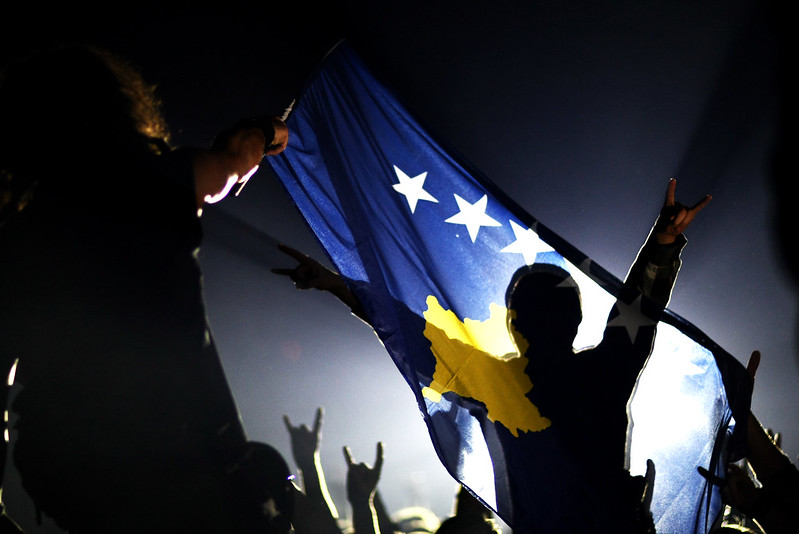On February 14, citizens of Kosovo will take to the polls in a high-stakes election to determine the parliament responsible for addressing the country’s democratic and governance shortcomings. Managing a public health and economic crisis, overcoming extreme polarization and improving Kosovo’s relationship with Serbia are just a few tests for the incoming government. And while addressing the public’s concerns and creating unity within Kosovo will not be easy, it is critical to protecting the country’s fragile democracy. Only stable democratic institutions will be able to deliver sustainable solutions.
Here are three key challenges Kosovo’s new government will face after Election Day:
An ongoing pandemic and economic recession
Like for all countries, 2020 was a difficult year for Kosovo. In a country of just 1.8 million people, COVID-19 has taken the lives of 1,500 and infected more than 61,000 in total. While the healthcare system has survived so far, new mutations of the virus and a limited supply of vaccines threaten its collapse. On the financial front, the country is suffering from its worst economic downturn in years, with the economy expected to decline by 7.2 percent according to the Governor of the Central Bank of Kosovo. Responding to the fallout, Kosovo’s political parties have focused their platforms on health and economic issues, but the incoming government will need to swiftly put their campaign promises to action and address citizens’ most pressing concerns.
A polarized political situation
COVID-19 aside, 2020 has brought high levels of political turbulence to Kosovo as well. Only a few months after former Prime Minister Albin Kurti took office, the government’s coalition partner the Democratic League of Kosovo (LDK) initiated a vote of no confidence to oust him from power in response to his dismissal of the LDK Minister of Interior. A new government, led by Avdullah Hoti of LDK, then assumed control, only to fall in December after Kosovo’s Constitutional Court struck down the validity of the government’s election on the basis of an invalid vote by a member of parliament who had been convicted of a crime in 2019.
The Court also instructed the acting President to call early elections and barred candidates with a criminal conviction in the last three years from vying for office. Shortly before that, in November, the President of Kosovo had resigned after the Hague Specialist Chambers indicted him of war crimes and crimes against humanity.
With a lack of constructive dialogue among political parties, polarization in Kosovo is more extreme than ever. Campaigns have also resorted to using denigrating language and sporadic violence in the lead up to elections, creating an environment of intense division in Kosovo. In response, the International Republican Institute (IRI) is collaborating with political parties to create more policy-focused, citizen-centered campaigns.
After the election, the parliament’s first challenge will be overcoming Kosovo’s internal divides to reach a consensus on a new President. In the absence of such an agreement, Kosovo risks another round of elections in the spring of 2021.
Kosovo-Serbia Dialogue
The chief regional challenge for Kosovo remains its relationship with neighboring Serbia, the government of which refuses to recognize Kosovo’s independence. Because normalization of relations is a pre-requisite for European Union (EU) accession, it is in the interest of both countries to find common ground.
Though recent months have brought progress in the Kosovo-Serbia dialogues, the process is far from complete. Following a pause in talks, Hoti’s government made a series of decisions, including an end to the 100 percent tax on Serbian imports, that paved the way for renewed negotiations. In addition, the Kosovo and Serbian governments signed the Washington agreement on economic normalization in September, taking a key step toward improved relations and economic development for both countries.
However, the Kosovo-Serbia dialogue remains an ongoing challenge, with repeated delays in negotiations creating a sense of fatigue. While Hoti’s party has reiterated its commitment to the dialogue, other parties do not share the same urgency to reach an agreement. A reinforced commitment to the EU-facilitated dialogue and to the implementation of the Washington agreement will be needed from the incoming government to ensure a more stable Kosovo.
While the challenges for Kosovo’s next government are numerous, Sunday’s elections extend an important opportunity for the country to overcome its divisions and find solutions to internal and regional problems. As Kosovo navigates an uncertain future, IRI will continue to support its citizens and government to create a more democratic and stable country.
Top
